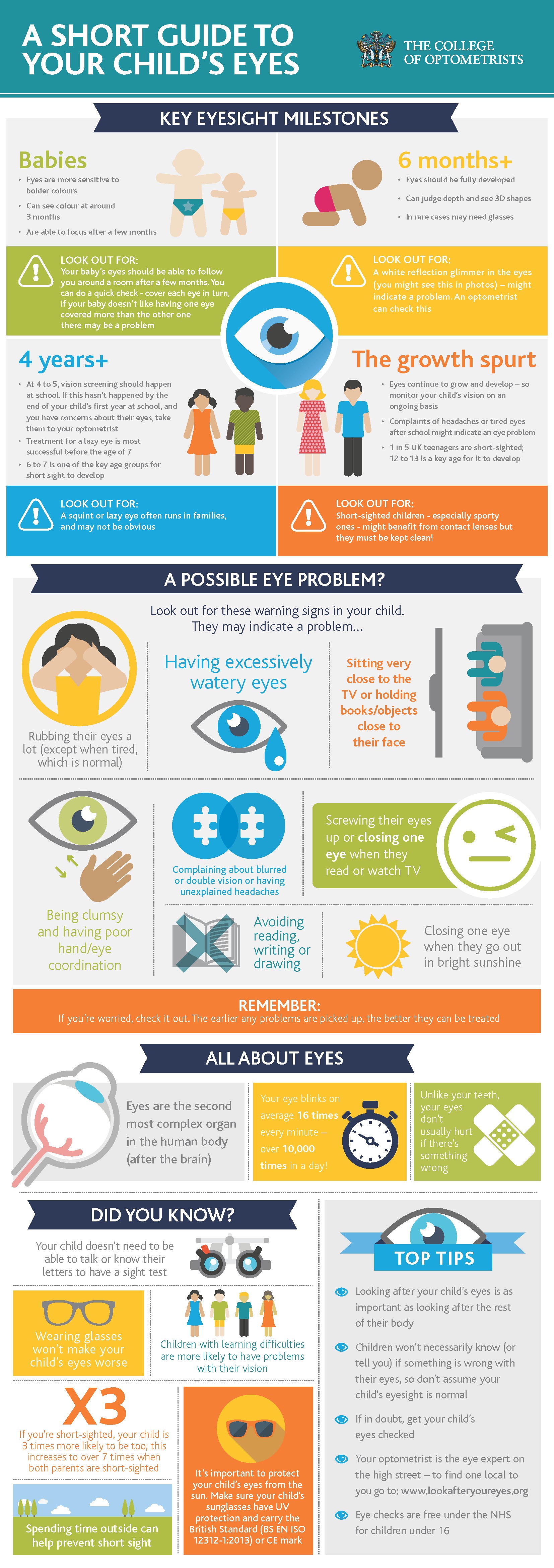A lot of parents lead very busy lives, trying to balance the demands of looking after children, the home and work. Whilst of course all parents want to do everything they can to make sure their child is as healthy as possible, things like potential vision problems can be overlooked.

Top Tips For Keeping An Eye On Your Children’s Vision
As children grow and develop it's crucial that parents are aware of any signs that their child might have a problem with their vision, especially as young children may not know what's normal when it comes to vision and wouldn't be able to tell you if something is wrong.
Most children have excellent sight and will be fine but for the minority of children who develop vision problems, it's really important that these are picked up as early as possible. After all the earlier a problem is picked up the more effectively it can be treated. For example, amblyopia (commonly known as a lazy eye) is most effectively treated before the age of seven.
The UK National Screening Committee recommends vision screening should be provided for all children aged 4 - 5 and this normally takes place in schools. However the College has found that many children may be missing out on this vital test, meaning that vision problems could go undetected unless parents are vigilant and take them to an optometrist if they have any concerns.
Although the majority of children will be fine, those whose vision problems aren't picked up could be at risk of falling behind at school. We can hardly expect children to keep up in class if they can't see the whiteboard clearly!
So what should you as a parent be looking out for?
There are various signs which could signify a problem. These include things such as:
- An eye turning in or - less commonly - out
- Your child rubbing their eyes a lot (not just when they're tired)
- Excessively watery eyes
- Your child sitting very close to the TV or holding books and other objects close to their face
- Your child screwing their eyes up, or closing one eye when reading or watching TV
- Clumsiness and poor hand / eye coordination
- Complaints about blurred or double vision or unexplained headaches
- Closing one eye when going out in the bright sunshine
- Avoiding reading, writing or drawing
There may be nothing to worry about, but we would encourage parents who have concerns about their child's sight to take them to the optometrist for an eye exam.
Remember that your child doesn't need to be able to talk or know their letters to have a sight test, and optometrists will use different techniques to make the examination fun and engaging for children. Watch this video with your child to help them know what to expect when going for a sight test.

Tagged in eye health

